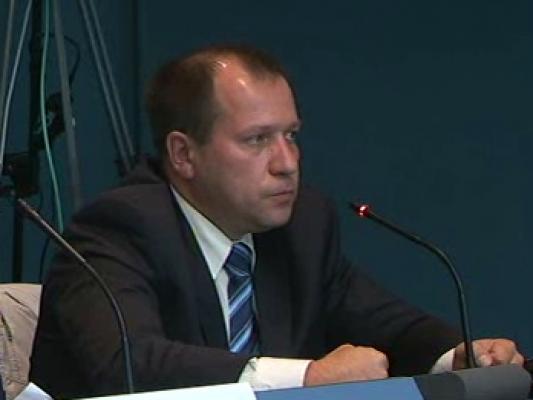
President Medvedev and, apparently, the Ministry of Internal Affairs have presented to the public the new law “On police” which is supposed to substitute for the existing law “On militia” and even suggested that the Russians should discuss it.
As for the new name – “police” instead of “militia” – this, I mean the new name, is the only really drastic change in the system of the internal affairs bodies proposed by the President in the draft law. We may say that this renaming is the only totally successful novelty in the law. Generally, “a mouse has been born from a mountain” – that’s the only thing I can say about this idea.
Seriously speaking, the draft law is a total disaster. Not a single expectation of the public and human rights defender concerning the police reform has been implemented in it. The authorities were carried away with rebranding of the Ministry of Internal Affairs, not noticing that the rebranding was done to a decayed and tumbledown system. And as for a profound reform, it is not there and will never be there, as we can see from the text of the draft law.
We can find many epithets that would correctly characterize the draft law and what is behind it, but the best way would be to say that the Russian authorities has once again resorted to their favourite trick – building Potemkin villages. If the only thing the authorities are going to do in order to change the catastrophic situation with the Russian police is to change its name – well, then I guess we’ve hit rock-bottom.
The situation with the Russian police cannot be remedied by some expendable reforms. Now we should try to create a favourable environment and chalk out some prospective lines of development. These are systems with state-public control.
Let’s put it baldly – there is no public control over the police in Russia now.
State control is declarative and ineffective. In the first place I mean control of the investigation authorities under the prosecutor’s office which most eloquently demonstrate their impotence when investigation into the allegations of police abuse under citizens’ applications.
As far as public control is concerned, according to the authors of the draft law, Public Boards under local internal affairs bodies must be headed by a local high-ranking police official. This is not social control, this is a profanation and derision of common sense.
Clause 8 of Article 9 is also a mockery – it declares that “public opinion about the police is one of the major criteria for the official evaluation of its performance”. A wonderful innovation! But that’s the only phrase to this point. What opinions will be taken into account? Of what people? For what period of time? How will the police evaluate these opinions? From the quantitative or qualitative point of view? What activities will be assessed this way? What methods will be used?
If public opinion is “one of the major criteria” to evaluate the performance of the police, why not give this criteria some practical manifestation? And, by the way, what other “major evaluation criteria” will be used to assess the performance of the police? There is not a single word about this in the law.
These questions are not just captious criticism. If we proceed from the point of view that assessment of the police by the population is an inherent part public control, in this case the society is fully entitled to a detailed and concrete explanation of the mechanisms, forms and implementation techniques needed to make this tool real. But the law contains nothing of that, there are only hollow and benignant declarations.
Moreover, the draft law expands the rights of the police to some fuzzy boundaries. In particular, in terms of one of the most problematic issues – the use of weapon.
Basically, the presumption of legality of police officer’s actions and requests is good for Germany or the UK. In today’s Russia the authorities want to give this presumption and unlimited powers to modern Russian policemen who have not yet taken the training envisaged by the draft law and have not yet become, as the president says, “professionals who work effectively, honestly and consistently”.
The issue of the police structure is not covered in the draft law at all. For some reason the structure is to be determined by the President, and the legislator is removed from the solution of this important problem.
The conclusions are unpromising. If the draft law is passed the way it is now, it will destroy the Ministry of Internal Affairs completely. And the confrontation between the society and the police which has intensified recently, may even acquire a more violent form.
Igor Kalyapin,
Chairman of Interregional NGO “Committee Against Torture”, member of the Expert Council under the Office of the Human Rights Commissioner for the Russian Federation, member of the Public Monitoring Commission for supervision of detention facilities in Nizhny Novgorod region.